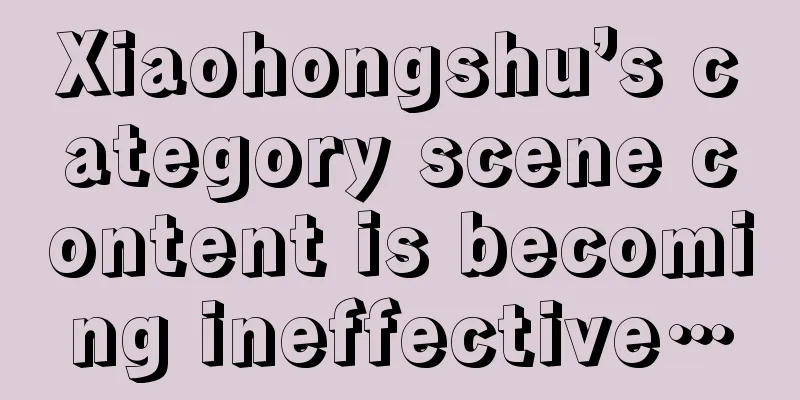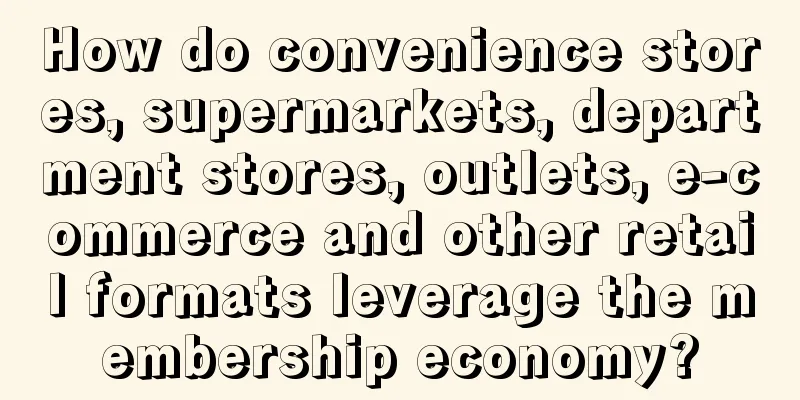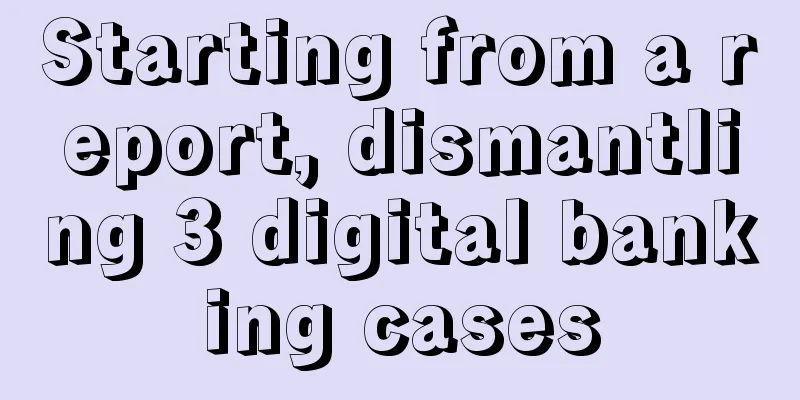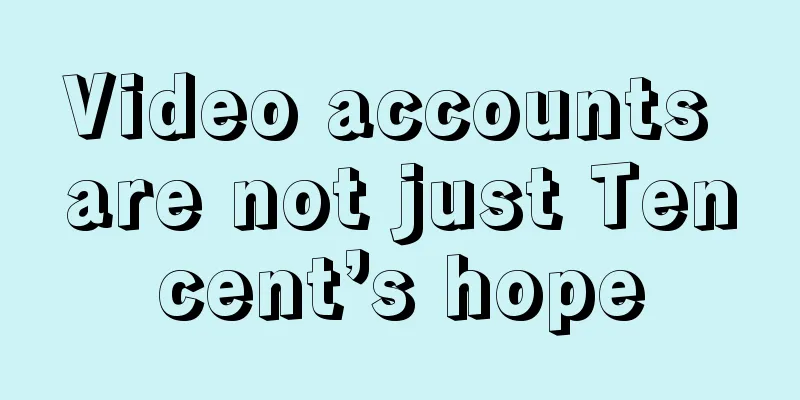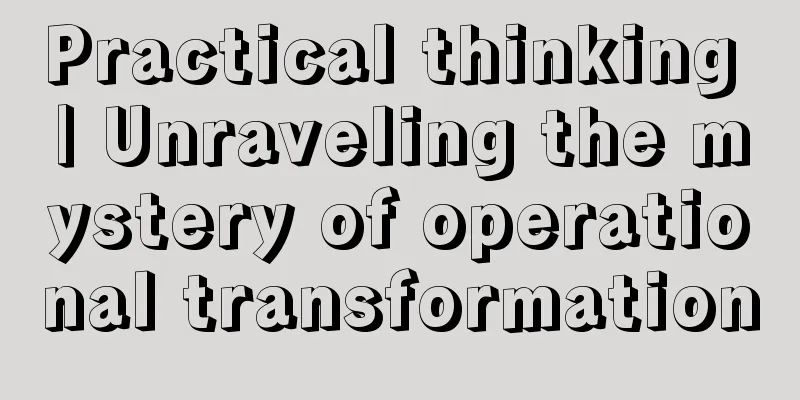The consultant's true fragrance law
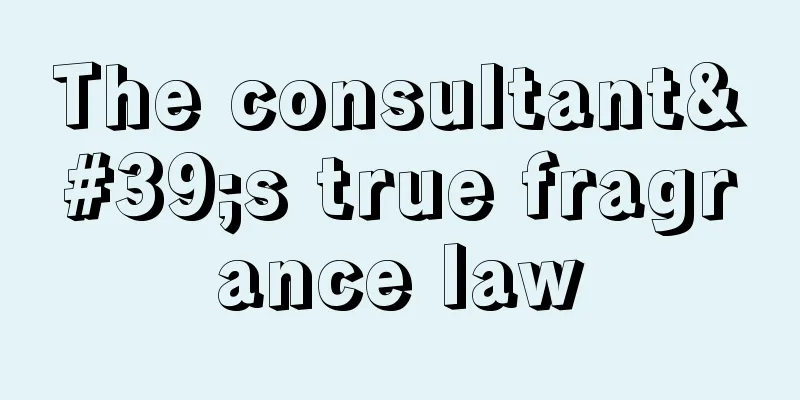
Recently, I have discovered in my service to clients that consulting is very different from other jobs. This difference made me curious, so I asked friends around me who knew about this; some of them had just switched careers from senior positions. From them, I learned that some people are not doing well in this business, either they can't find customers or they can only serve some old customers. However, this is not the case universally. In order to understand this issue more deeply, I also consulted some experts who have worked in the consulting industry for a long time and even started their own companies. Some of them have so many clients that they are overwhelmed and even have to pick and choose what to do. They shared with me a lot of things I didn't know before, which made me feel that being a consultant seemed to contain some kind of "profound knowledge". The knowledge learned from practice can be called "tacit knowledge", and mastering this knowledge is the key to becoming a successful consultant. To transform inexpressible experiences, unspoken rules, and industry insider information into feasible practices, so as to better serve clients and help new consultants grow, we must return to the act of "consultant" itself. 01What is a Consultant? You need to have rich vertical industry knowledge and experience, as well as connections, to be able to provide customers with solutions and suggestions that are relatively objective and fair. At the same time, you will also help the company handle relationships with external parties when the company needs it. Simply put, a consultant uses professional knowledge to help others solve problems. There are many types of consultants, who can be divided according to professional fields and service objects. Among the companies I have contacted, those with more demands include process consultants, legal consultants, technical consultants, marketing consultants, personal consultants, etc. Everyone calls it different things. For example, I provide marketing and public relations services to clients, so I am also called an external brain. After visiting many companies, I noticed that large companies usually hire many consultants, but many outsiders may not understand them. for example: The biggest internal friction of a company is hiring a bunch of consultants; the consultants charge high fees, but their actual contributions are not obvious; the consultants pretend to know everything, collect the consulting fees, and then leave, leaving a bunch of problems for the company to solve. Some people also think that big companies recruit top talents, so why spend money to hire consultants? Is it because there are no capable people in the company and they need to rely on external theories? On the one hand, these complaints reflect people's prejudices and misunderstandings about the work of consultants. On the other hand, they also reveal some practical problems in the consulting industry. Sometimes, consultants do rely on theory and lack practical experience; sometimes, their advice is indeed inconsistent with the company's situation, which not only confuses clients but also has a negative impact on the overall reputation of the consulting industry. Why does this happen? On the one hand, I think consultants tend to rely on models and methodologies that have been proven in practice in their pursuit of work efficiency and solution feasibility. These models and methodologies are usually based on rich experience and large amounts of data analysis and are highly applicable. Take PR as an example. When a brand faces a crisis, it usually issues a public statement to express the company's position and the measures taken. If you improvise, there are likely to be many loopholes. So, what should be done? PR consultants will follow a set of "standardized" crisis PR templates to respond. This template is built based on the "best practices" summarized from many crisis public relations cases in the past. It includes a series of "standard" steps such as emergency response, information disclosure, responsibility definition and subsequent corrective measures. By incorporating brand crisis events into this template for response, it can at least help brands quickly implement segmentation and stabilize public opinion. Doing so can send a clear signal to the public: "The brand is conducting self-examination and will promptly inform the public of any new developments." This approach can help prevent public opinion from further deteriorating, thereby avoiding a greater crisis. On the other hand, some consultants, in pursuit of quick delivery and compensation, will ignore investigation and research and hastily make recommendations. This one-size-fits-all approach is not because they don’t do research, but because the topic is too large. for example: In the TOB field, especially for companies that develop software solutions for customers, most delivery models require customers to purchase a set of software first. During this process, as a solution consultant, you will encounter some large and complex projects. These projects involve multiple departments, business processes, and technical issues, and require long-term and in-depth research and discussion. If the consultant really studies everything and provides a solution, it may take a month. Therefore, in order to let the company use the tools as soon as possible, the most direct method is to push the software tools to the company first, and then adjust and optimize them according to the company's actual business needs. Using this approach, many unexpected problems will be encountered at the beginning, but at least the company has a real environment for testing and use. Everyone can also see more directly how the tool performs in actual business. By optimizing while using it, they can also have a deeper understanding of what is needed and how to make adjustments more appropriate. Moreover, this approach of rapid trial and adjustment also allows companies to adapt to new tools and processes more quickly, helping to advance innovation and change more quickly. Therefore, sometimes quick trials and improvements are easier to quickly identify the core of the problem and better meet the company's actual needs than long-term planning and design. If you understand this, you will also understand why consultants always want quick delivery and after-sales service. 02Companies know that hiring a bunch of consultants is a waste of money, so why do they hire them? There are three real reasons: First, find customers and channels What? Finding clients through consultants? Yes, you heard it right. Most people will think of traditional customer acquisition methods such as advertising and marketing, which are all aimed at attracting the attention of potential customers through large-scale publicity. However, in the B2B industry, companies are more focused on accuracy and efficiency. In order to save time and shorten transaction links, finding customers directly through consultants will be much easier, which is hard to imagine. A boss told me that the company has signed contracts to hire 20 vertical self-media like me. The reason for doing this is that your content is specialized enough and will attract industry attention. Instead of creating content and attending conferences ourselves, we might as well invest the money in consultants. I just need consultants to provide me with leads throughout the year. Moreover, consultants can provide more personalized and professional service suggestions. They have a foundation of trust and can reduce the traditional B2B sales screening process, which is a three-pronged approach. He recommends the client to me, and perhaps this client can also cooperate with him, so all three parties benefit at the same time. Another boss who runs a single brand told me that in order to ensure the smooth opening of stores on platforms such as JD.com, Tmall, Douyin, and Kuaishou, and quickly connect to the official channels of each platform, he also directly hired people with rich industry operations experience as consultants. Why do this? On the one hand, this strategy greatly reduces the pressure and distraction of the internal operations team in finding suitable candidates and connecting channels. On the other hand, through consultants’ matchmaking, brands can more directly and accurately grasp the latest developments of major platforms and upcoming support plans, so that they can adjust their operational strategies and directions in a timely manner. This not only ensures that we can occupy an advantageous position in market competition, but also enables us to more accurately meet the needs of the platform and the market and improve our competitiveness. Second, provide an external perspective A few days ago, a marketing consultant shared his experience with me. Many of his clients, mostly enterprise-level ones, tried to persuade him to join the company, asking him what kind of benefits he wanted and whether he was willing to meet them and not have to work in the office, but he refused them one by one. I said, isn't this good? The other party said, no. You have to know that any organization is likely to fall into a fixed mindset. When everyone works in the same environment, the way of thinking and looking at problems may become more and more similar, and new perspectives and innovative ideas will become scarce. Even if someone has a different idea, the team's senior management is likely to remain silent. Why? After all, they know that once a problem is raised, a solution must be found. If it is not solved well, it will leave a negative impression; at this time, the boss needs an external, global perspective, which can guide the team like a navigation. Like: We all know the way home, but why do we still need navigation? Because navigation can provide real-time information about road conditions, speed limits and road repairs, providing us with the most accurate guidance and saving energy. Therefore, if I (the consultant) become too closely associated with a company, I may not be able to continue to perform that role well and end up in the same situation as the executives. I didn’t understand this before, but now I do. A boss who stays in the same "pool" for a long time will become like the people around him. He is not in urgent need of solutions, but he needs some "external brains" to diagnose problems for him and provide critical feedback, which is a key factor in stimulating organizational vitality and creativity. In addition to the above, there are some temporary support "demands". A senior consultant told me that he worked as a process consultant for a leading office software company, and the HR department often encountered process reform problems. for example: Business is dynamic and sometimes requires cross-collaboration and reporting. Everyone has KPIs and OKRs. How to ensure that everyone can achieve their results while reducing possible friction and confusion? There is often a lack of an overall perspective internally. Indeed, I have a deep understanding of this. I often encounter some temporary needs among the clients I serve; for example, they will ask me, everyone else’s brand is promoting products, but we don’t, let’s try a new method, can you help me see if it’s feasible? Also, how should the marketing and public relations department be built to suit my current development stage, etc… This is actually a form of risk-taking. Clients obtain professional advice from consultants, reduce pressure on internal teams, and use the consultants' vision to solve problems or develop new strategies. Finding customer channels, external perspectives, and temporary needs are three things I often encounter. Every company has its own set of rules, and the things involved are also varied. It is not just the few things I just mentioned, but can be subdivided into more and deeper areas. If you can understand this, as a consultant, it may be easier for you to meet the needs of your clients, but not everyone is qualified to be a consultant. This is because consultants must be compatible with both the "Tao" and the "Skills", and neither is indispensable. 03What is Tao? When people talk about Tao, they mean laws, scientific principles or the essence of things. From a consultant's perspective, I prefer to understand Tao as an "energy field" with a dual meaning. First of all, the energy field of Tao comes from the upstream of the industry and specific circles. It is very valuable and rare, and can determine whether you can establish a basic reputation, gain widespread recognition, and have a large number of people following and supporting you. A senior consultant in the marketing industry told me that when clients need to spread information, they can not only develop plans for them, but also quickly implement them. If KOL support is needed, he can quickly gather many influential people through his own energy field. Therefore, this capability field should not be measured solely by the principle of "mutual benefit". It more reflects the network of relationships that consultants build in integrating upstream resources. Secondly, from the company's perspective, this Tao is an organic combination of rapport, emotional value, and information gap. It largely reflects whether the consultant can accurately and deeply understand and grasp the needs and expectations of bosses and employers when communicating with them. Why three layers? Because, first impression is the first step to establish cooperation, I call it the art of metaphysics. In daily life, when people make friends, they can often feel whether they are willing to continue communicating with each other at a glance. For consultants, this first impression is particularly important. It may seem insignificant, but in fact, it often determines whether a subsequent cooperative relationship can be established, and even affects the smoothness of the cooperation. I have communicated with many bosses, some of whom I could talk to for days. I am willing to share everything I know with them, and they also hope to seize this opportunity and ask me as much as possible. However, even so, it is not necessarily possible to reach a cooperation in the end. On the contrary, with some people, we can reach a contract after just one afternoon of communication. I have asked this question to many seniors, and they generally believe that if there is a lack of "heart-to-heart" feeling from the beginning, there is no need to continue, and it is always right to trust in chemistry. However, it is not enough to just have a good impression, you must also have rich emotional value. In the process of communicating with founders and business leaders, listening is certainly an important part, and another more core part is guidance. What to guide? There are four points: The direction of the conversation, the problems encountered, the customer's existing solutions, and the risks they are worried about. However, customers generally do not open up completely easily, especially bosses, who will only express part of their ideas and needs. They have either seen what other people or companies have done and are not sure how their own team should implement it; or they always feel that there is something missing by doing it this way. Therefore, the most important thing for a consultant is inspiration. This requires one to use asymmetric information and communication skills to stimulate the client's thinking, gradually deepen the discussion until reaching the core of the problem and inspiring the other party to find a solution. A senior business consultant friend told me that before meeting with a client, he would do his homework, look up the company's competitors in advance, and consult other clients who have done business with the company. Understand the possible problems and shortcomings of the company. This way, you can be prepared during the meeting and ask pointed questions. To put it bluntly, I can't be completely clueless about your external dynamics. 04Understand the Dao before talking about the "technique". What is the "technique"? Two aspects: the overall perspective and the methodology. What is a global perspective? Understand what role a service plays in a company or industry, and how it connects and interacts with other parts; in short, understand what position this service occupies in the entire system and how it creates value for everyone. for example: A consultant expert in the ERP field told me that from consulting to implementation, they must first have a solid accounting foundation, understand the accounting system, and have integrated financial and business basics, and then master the product design concept, overall process, and usage scenarios. Furthermore, you must be proficient in any field such as finance, supply chain, manufacturing, smart factory, mobile office, or retail, etc. Only then can you deeply understand the customer's pain points and provide clear and detailed solutions. SCRM, SaaS, OA, and low-code platforms require this kind of approach even more. In other words, you have to be able to look at the industry perspective, understand what stage the customer is in, and what capabilities are missing. There is also an attribute whose characteristics make it difficult to fully grasp even with a broad perspective, such as "marketing services, public relations consulting." From a single perspective, this type of service belongs to a specific module or field, but in actual implementation, this type of service is more complex and mixed. What should I do? Experienced predecessors suggested that we could sort out and build a set of methodologies, or develop a set of strategic frameworks for delivery. In this way, we can integrate various knowledge and experiences to more effectively cope with various complex and changing needs. Take providing sales consulting services to B2B companies as an example. Generally speaking, it is difficult to directly provide specific and concrete solutions. In this case, a more ideal solution is to refine and summarize the various abilities required for sales skills, and then transform these abilities into specific training content and delivery materials. This will not only help the company improve the professional capabilities of its sales team, but also ensure that consulting services can more accurately meet the actual needs of customers. Any consulting service can be "standardized", whether it is strategy, process, methodology, or practice guide. In my opinion, what is more profound and rare than these is the knowledge and wisdom at the "Tao" level involved in consulting. In summary:The best military operation is to attack the enemy’s plans, the next best is to attack their alliances. In this world, there are no eternal friends or eternal enemies. A consultant is more like an individual who is constantly growing and improving. As a company, how to make good use of consultants is also a science. If you don’t think they are good, you may not use them. Author: Wang Zhiyuan WeChat public account: Wang Zhiyuan |
<<: The old domestic brand "Team Building" is very popular! How long can this carnival last?
>>: Marketing Calendar | October is full of creativity, are you ready to celebrate the festival?
Recommend
Data analysis report, how to write the [Suggestions] section?
How to make effective strategic suggestions in dat...
What is the URL of Amazon's North American site? Which countries are Amazon's North American sites in?
As the wave of digitalization sweeps the world, cr...
How to register a local store in Taiwan on Shopee? How to select products on Shopee Taiwan?
Shopee is an e-commerce platform headquartered in ...
Is it better to use RMB or USD on Shopee? What are the fees?
Friends who do cross-border e-commerce should all ...
Can the Oriental Selection App, which has launched cultural and tourism products, become a "catfish" in the industry?
Recently, the Oriental Selection App launched cult...
Can Amazon reviews be deleted? Which negative reviews can be deleted?
After buying something on Amazon, you can leave a ...
After talking with several emerging brands, we summarized three directions and 10 suggestions for reducing costs and increasing efficiency.
"The situation this year is that the wealthy ...
How long does it usually take for Amazon Europe to conduct a KYC audit?
Sellers on Amazon Europe sometimes encounter KYC a...
In the new 10 yuan era of tea drinks, it is not only about price
The price war has spread to the tea beverage marke...
What does Amazon storage limit mean? Which products have storage limit?
The logistics model for opening a store on Amazon ...
How to register on shein? Do I need to pay?
The most famous Chinese cross-border e-commerce pl...
Young people, looking for their hometown in short videos
Rural videos are emerging on short video platforms...
Why can't I withdraw money from Meikeduo? What are the sites?
When you open a store on an e-commerce platform, u...
How can I have my own methodology when working in a small factory?
Students working in small factories always envy th...
How do offline stores use Alipay to promote operations?
As a payment platform, how can Alipay be better us...



